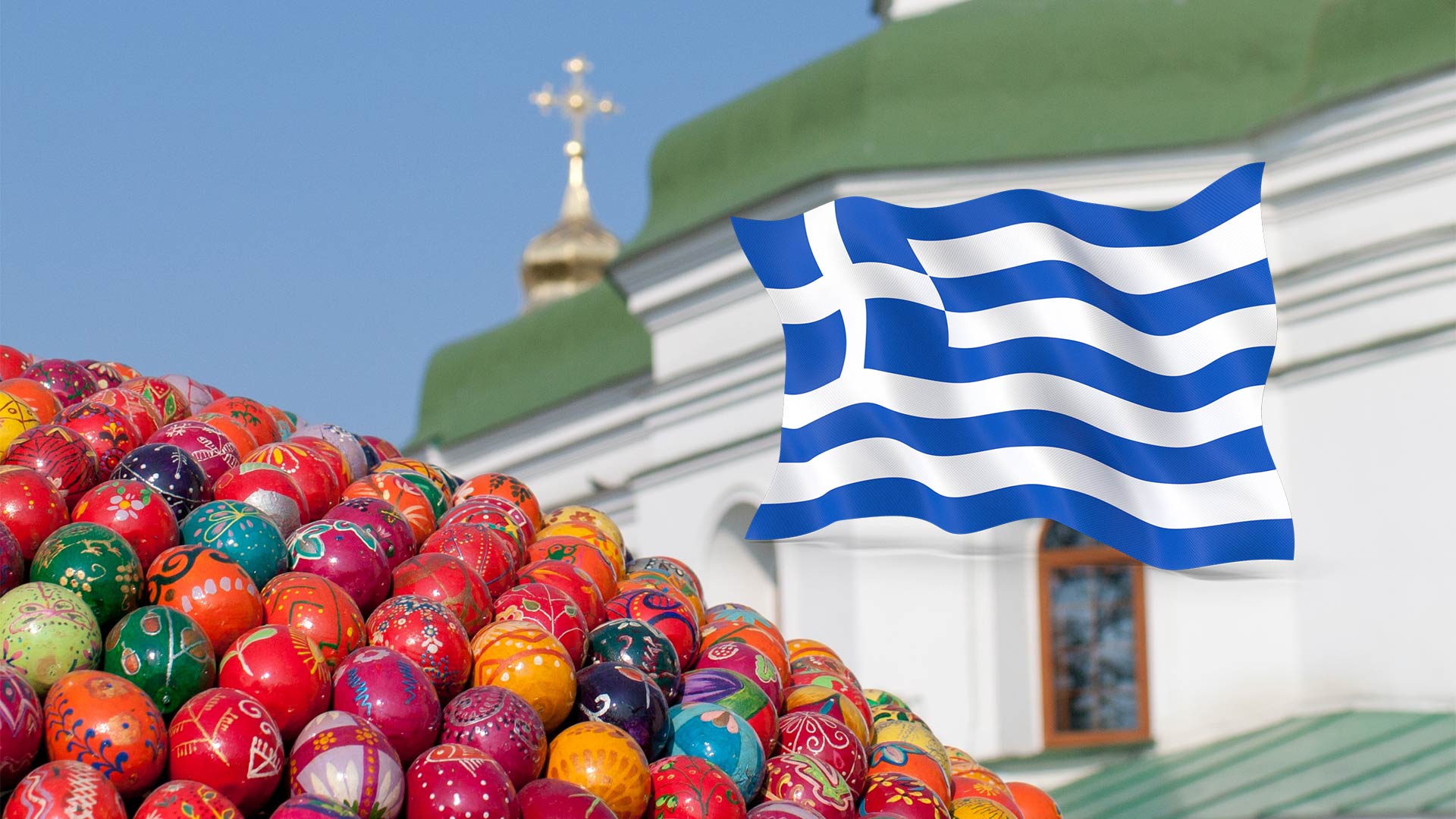Easter in Greece is one of the tippy tippy top most important moments of the year. If you’re thinking of visiting Greece in spring or you’d just like to know what Easter looks like in Greece, we’ve got you. Today, we’ll go over a few of the more interesting aspects of Easter in Greece.
The Greek calendar
Not everyone knows that the Greek Orthodox Church still uses a calendar based on the Julian calendar. The Catholic and Protestant Churches follow the Gregorian calendar, which was introduced by Pope Gregory XIII in 1582 and replaced the Julian calendar. Consequently, the holidays are on different dates. Orthodox Easter 2024 falls on the 5th of May. As such, if your country is following the Gregorian calendar, you can sneak in two Easters in one year!
Good Friday Epitaph
All shops and businesses are closed on Good Friday. Flags are lowered to half-mast as a sign of mourning. After all, it’s the day Jesus died. As such, the mood of the day is sombre and bells sing a low tune throughout the day. In the evening, processions hit the streets, but there’s no sign of awe or celebration in the air. On Good Friday, Greece mourns.
Pot smashing on Corfu
If you’re in Corfu on Holy Saturday, don’t be surprised by the morning noise. It’s just the locals dumping ceramic pots out the window, right onto the street. The idea is apparently to create an effect like a small earthquake to symbolise the coming of Christ. It’s also a welcoming of spring and making space for new vessels to store this year’s harvest. Probably the favourite time of year for ceramic shops and a not-so-favourite time of year for anyone with decent hearing.
Red eggs
Greeks paint their eggs as early as Maundy Thursday. They are traditionally coloured red, which symbolises the blood of Jesus and is also the colour of the joy of the resurrection. In many parts of Greece, red cloth is hung on Maundy Thursday. This custom signifies that Christians are living in that house and preparing for Pascha.
On Easter Sunday, each person takes one or more eggs and the Easter game begins. Each player bonks the egg of the opponent with their egg – the idea is to crack both sides of the egg of the opponent without cracking your own. The winner is the person whose egg cracks both sides of the opponent’s egg without their own cracking in the process. Eggs are then peeled and consumed.
Bonfires and fireworks
Greeks celebrate Easter with more than just eggs cracking, though. In the spirit of the Corfu pots, you can also hear fireworks going off as the late Holy Saturday mass comes. Some Greeks took it too far in the past, even using petrol bombs to symbolise the resurrection (don’t ask us, we don’t know why either). Other places are a little bit milder, burning little effigies of Judas or making bonfires to welcome the coming of Christ. Either way, it’s unlikely you’ll get any sleep that night.
There’s also a tradition to carry a burning candle back from the mass to your home, as that’s supposed to bring luck too.
Roasting a ram
Finally, we have Easter Sunday. In our home, Poland, we make little pastry lambs – in Greece, they use the real deal. The smell of roasting meat can be smelled everywhere from early in the morning. In some villages, they, instead, use goats. Archangelos is one example, where they make a special meal out of the front of the goat, rice and various herbs baked in a clay pot.
See also:






